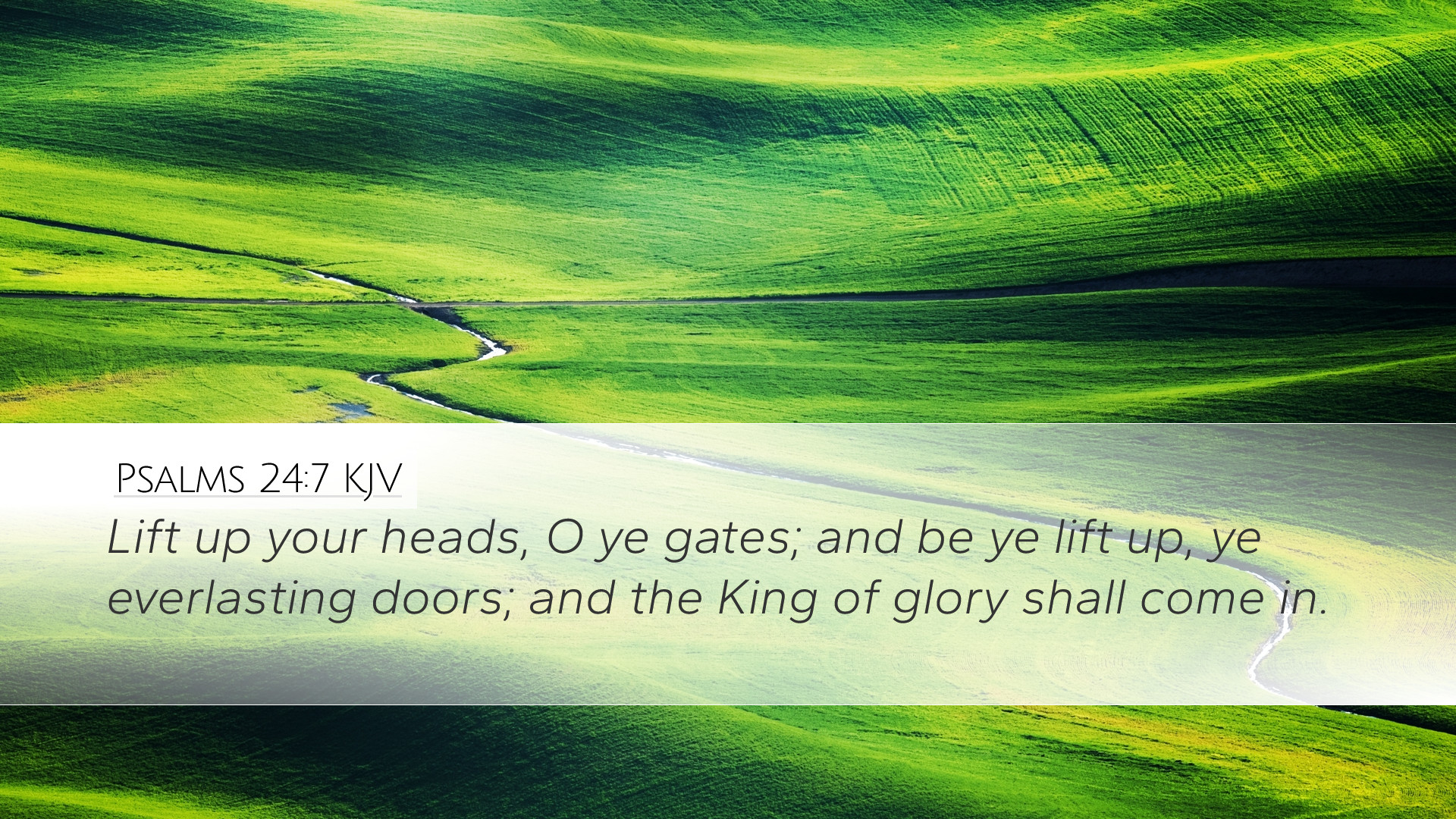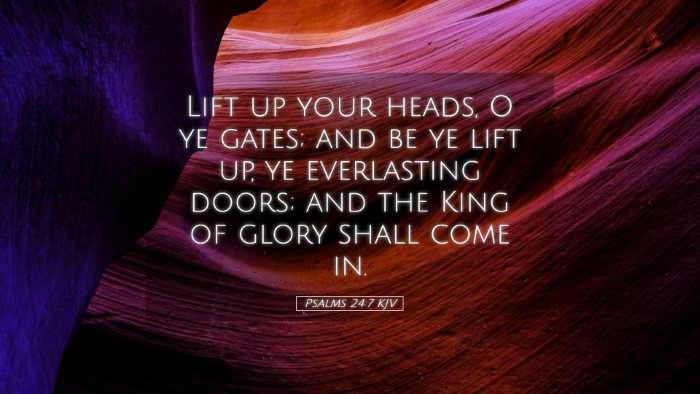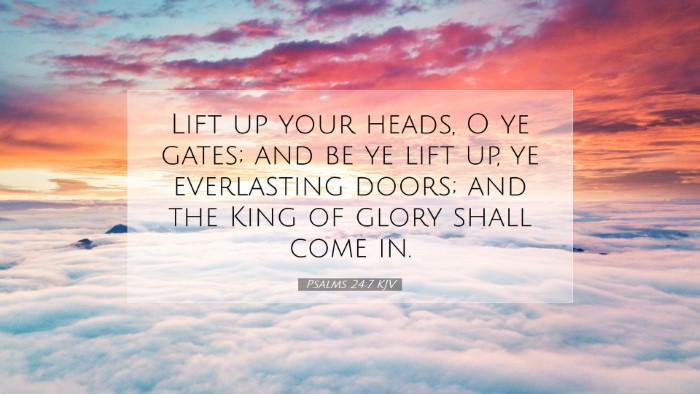Psalms 24:7 - Commentary and Insights
Psalms 24:7 states: "Lift up your heads, O ye gates; and be ye lifted up, ye everlasting doors; and the King of glory shall come in." This verse forms part of a Psalm that celebrates the sovereignty of God and the glory of His reign. The interpretation and implications of this verse can be enriched through a combination of insights drawn from esteemed public domain commentaries such as those by Matthew Henry, Albert Barnes, and Adam Clarke.
Contextual Background
This verse occurs in a Psalm that is often understood as a coronation hymn of sorts, possibly for King David or the entrance of the Ark of the Covenant into Jerusalem. The call to the gates and doors to be lifted up signifies an invitation to the divine presence. This imagery has theological and liturgical significance, emphasizing God's greatness and the joy of His coming.
Insights from Matthew Henry
Invitation to Divine Presence: Matthew Henry comments that the gates and everlasting doors represent the entrance to the city of Jerusalem, which must prepare for the arrival of the King of Glory. Henry emphasizes that this is not merely a physical act but a spiritual invitation to acknowledge God's majesty and sovereignty.
The Nature of God: He notes that the title "King of Glory" indicates God's ultimate authority and splendid majesty. This calls worshipers to lift up their heads and hearts, prepared for His entrance. It is a reminder that the Lord seeks to enter our lives and our communities, offering His glory and grace.
Insights from Albert Barnes
Symbolism of Gates: Barnes elaborates on the metaphorical gates as representing the barriers that separate us from divine grace. To lift these gates signifies the removal of obstacles that prevent us from experiencing God's presence. The imagery serves as a powerful call to the faithful to open their hearts to God.
The Significance of 'Everlasting Doors': Barnes highlights the phrase “everlasting doors” as alluding to the eternal nature of God's kingdom. Unlike earthly kingdoms that rise and fall, God's kingdom is everlasting. Therefore, when the King of Glory approaches, it is a moment of profound transformation, inviting us into everlasting fellowship with Him.
Insights from Adam Clarke
Theological Reflection: Adam Clarke offers a theological perspective on this verse, noting that the King of Glory is none other than God Himself. Clarke stresses the importance of recognizing who this King is - a God of might and power, deserving of the highest praise and adoration from His creation.
Call to Worship: Clarke emphasizes the refrain "Lift up your heads" as a call to worship, signaling that genuine worship enables us to enter into a fuller experience of God’s glory. This act of lifting heads and hearts is crucial for spiritual renewal and awakening, allowing for a deeper connection with the Divine.
Theological Implications
The verse serves as a metaphor for both external and internal preparations for God's entrance into our lives. The gates signify our hearts and the barriers we've erected against Him. As we lift them up, we are not only acknowledging His kingship but are also laying down our burdens and sin that hinder communion with Him.
Application for Pastors and Theologians
- Preaching and Teaching: Pastors can utilize this verse to illustrate the importance of preparation in worship. Encouraging congregations to recognize and remove their own barriers can foster a deeper worship experience.
- Personal Reflection: Theologians and students of the Bible can reflect on the nature of God's kingship in their own lives, considering what 'gates' remain closed within themselves and how they might open them to welcome His presence more fully.
- Corporate Worship: Churches can draw applications from this verse when designing special services that focus on welcoming God's presence, be it through music, prayer, or scripture reading.
Conclusion
Psalms 24:7 presents a powerful invitation to recognize the greatness of God as the King of Glory. Drawing from the insights of Matthew Henry, Albert Barnes, and Adam Clarke, we see the multidimensional significance of lifting our heads and gates to welcome God's presence in our lives. This verse challenges us to examine our own spiritual barriers and invites us into deeper communion with Him, both individually and collectively as a church. As we open the gates of our hearts, we can anticipate the transformative entrance of the King of Glory, leading us to greater worship and service.


